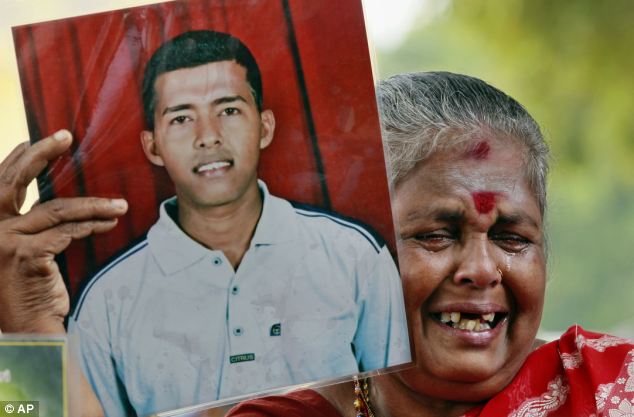[Accountability for war time HR violations is a must for avoiding international pressure]
European export credit agencies have begun imposing “sanction clauses” into draft agreements with Sri Lanka in anticipation of international economic, trade sanctions or embargoes — a move the Government has vigorously opposed.
This would mean that if international sanctions or embargoes are imposed on Sri Lanka, the export credit insurance cover would be suspended. This could result in the lending partners demanding a renegotiation of terms with higher interest rates, seeking outright settlement or introducing fresh conditions reflective of the higher risk.
Export credit is opened by an importer (in this instance, Sri Lanka) with a bank in an exporter’s country to finance an export operation. The World Bank defines an export credit agency as “a private or quasigovernmental institution that acts as an intermediary between national governments and exporters to issue export financing”.
Highly placed Government sources said the sanctions clauses were contained in draft agreements tendered by some European export credit agencies that are financing development projects in Sri Lanka. When the documents were sent last year to the Attorney General’s Department for review, the AG had objected.This resulted in negotiations between the Government and the export credit agencies, these sources said. It could not be immediately confirmed whether discussions were ongoing or had ended. But it is known that some of the projects that had been delayed due to talks have been finalised.
“When the documents of certain European-country-funded projects were forwarded to the AG’s Department, the AG had made some queries on certain conditions imposed by the European bank,” a ministerial source said. “But all our projects have now been cleared.”
Other sources said the project proposals of several ministries had been affected but that “most of these are cleared now”. “From what I hear, some banks have agreed to amend the clauses while others have dropped them,” one of them said. “The Government took this matter seriously.”
There is no indication of international economic, trade or financial sanctions against Sri Lanka. But the country has had successive resolutions passed in the UN Human Rights Council calling for, among other things, investigations into alleged war crimes committed at the end of the war in 2009.
The Office of the High Commissioner for Human Rights (OHCHR) this year appointed a panel to probe these and other allegations of human rights abuses in Sri Lanka. The Government said it was an attack on the country’s sovereignty and is refusing to cooperate.
“Sanctions clauses” are becoming more widespread internationally as Europe, the United States and others impose economic restrictions on countries non-compliant with UN charters and treaties. Iran, North Korea, Syria and Russia have been recent targets.
Wilhelm Rechtsanwälte, a German law firm handling insurance and liability issues, says the European Union issued a prohibition in 2010 against granting insurance cover for Iranian risks. Since then, many insurers have added a sanctions clause into their contracts.
Robin Burgess, a senior insurance underwriter in South Africa, observes that: “In light of the increase in application of —or the potential application of —international sanctions to the provision of insurance, many policies (whether in connection with insurance to Iranian or other entities) contain sanctions clauses.”
Some clauses give insurers a right to terminate the contract should the insurance be rendered illegal by sanctions or should the insured expose the insurer to a risk of being subject to any sanctions, he states. Others provide that the insurance will effectively be suspended or not operate at all should it be rendered unlawful by any sanctions legislation. It is not known how sanctions clauses in the draft agreements related to Sri Lanka were worded but they are likely to have been standard ones. “They follow a common format,” a senior official said. “It cannot be that they were specifically tailored for Sri Lanka. They must be part of the documents prepared for every receiving country. It is just that Sri Lanka looked at the clauses closely and wanted to opt out.”
The export credit agencies with which Sri Lanka signed agreements last year are Banco Bilbao Vizcaya Argentaria, S.A. (Spain); Coop Centrale Raiffeisen-Boerenleenbank (the Netherlands); Export Import Bank of Hungary; HSBC Bank PLC (UK); The ExportImport Bank of China; UniCredit Bank Austria AG (Austria); Export Import Bank of United States; BNP Paribas Belgium; and the European Investment Bank.
They financed a range of projects including the construction and rehabilitation of water supply schemes, treatment plants and sewage systems.
Source: Daily Mirror – Sri Lanka
